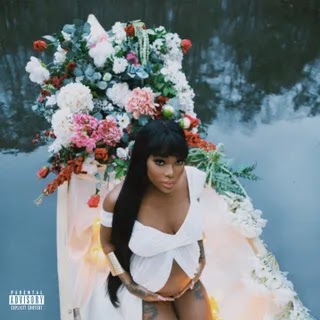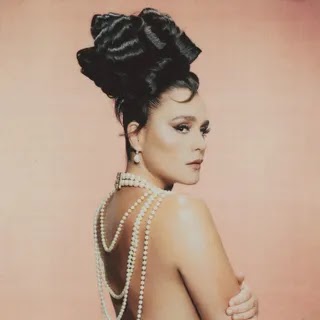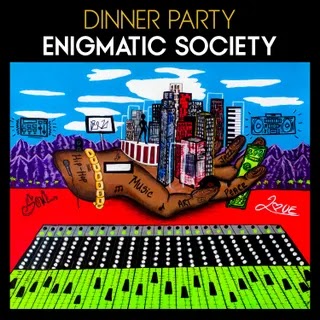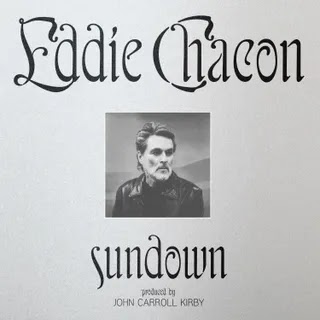Today on Pitchfork, we are taking a critical look at the UK band Sade—from quiet storm mainstays to defining a generational vibe—with new reviews of four of their records
Even on Sade’s official website, you have to dig around to properly see the woman herself. The lead image presents Sade Adu on stage and in silhouette, shot from somewhere below. The bright, disembodied heads of her bandmates—Stuart Matthewman, Andrew Hale, and Paul Denman—float behind her, a rich supporting cast. More light lands on the bodypack hanging at Adu’s hip than on her face itself. And what a face it is; for the first half of the band’s nearly 40-year career, the dancing, almond eyes and wide, perpetually rouged mouth of its frontwoman marshaled multi-platinum after multi-platinum album. By 2010, though, Adu had famously turned away; for the cover of Soldier of Love, Sade’s most recent release, she offered the camera her back.
But that retreat had begun in earnest on Lovers Rock, a decade earlier. The band’s fifth album was the first whose cover didn’t spotlight Adu’s full face. Instead, it’s her side profile, eyes looking down and away, that form its impression. Its 11 tracks share that understated energy, trading Sade’s signature luxuriance for a sparser, knottier sound, landing beautifully between the pastiched, jazzy pop of fellow ’80s UK breakouts like the Style Council and Everything But the Girl and the growing neo-soul bloc giving an edge to R&B in the late ’90s. Across Lovers Rock, Adu’s vocals, thick and low as always, recede into a breezy landscape of acoustic guitar, reggae bass, and simple percussion. “It’s less about the surface and more about the roots,” she said at the time.
Of course, the roots had always been there, in the form of Adu’s unusual melodies, razor-sharp lyrics, and the band’s lush grooves. But on Lovers Rock, Sade gives them space, wisely surrendering Matthewman’s velveteen saxophone, the signature instrumentation that threatened to calcify them as a relic of the ’80s easy listening cohort. Instead of the sumptuous boudoir Sade had unintentionally helped turn into a cliche with the ubiquity of songs like “Smooth Operator” and “Your Love Is King,” they turn up the natural sensuality of a winding breeze and a low, gibbous moon. Adu’s instinct for sexiness carries across Lovers Rock, this time her lower register hinting at the kind of intimacy that comes from gentle restraint and sustained eye contact.
Sade’s prolonged hiatuses now function as a social contract between the band and its fans, the gap steadily growing between each album. But the eight years between Love Deluxe and Lovers Rock was unusually long, even for the market demands of the pre-streaming era. In Sade’s case, the ’90s equivalent of “drop the album” memes manifested as gossip: that Adu had deep psychological or addiction issues, that only something dark and catastrophic could explain a desire for privacy. The rumors were so persistent, and so vague, that even in 2020, YouTubers can draw in hundreds of thousands of views to videos promising to explain Adu’s sabbaticals. In fact, Adu says, she was simply living, collecting personal life experiences to use as the source material for Lovers Rock. Slivers of those years are evident across the album: in the electricity of new love on “Flow,” the transformative joy of motherhood on “The Sweetest Gift,” and the torturous anticipation of heartbreak on “Somebody Already Broke My Heart.”
The abandoned literary ambitions of Adu’s youth found a home in her songwriting, which eschews conventions such as rhyme and verse-chorus-verse structure and yet manages to translate and illuminate swathes of the human emotional landscape. In her hands, love is an outstretched hand: “When you’re on my outside baby, and you can’t get in, I will show you, you’re so much better than you know,” she promises on lead single “By Your Side.” Despair is almost noble, as on “King of Sorrow,” and pain is an accomplishment. “It’s down a rugged road you’ve come/Though you had every reason, you didn’t come undone,” she sings on “It’s Only Love That Gets You Through,” summing up the Capicornesque nurturing and Earth mother-sagacity that exemplifies Adu in the public’s imagination.
As Sade had done before, like on the famine-referencing “Pearls” and the racial story of “Tar Baby,” Lovers Rock further expands the conventional understanding of love in pop music. Adu places social, humanist love right alongside romantic and interpersonal love. “Slave Song” and “Immigrant” are among the most moving of the band’s oeuvre: “Teach my beloved children, who have been enslaved, to reach for the light continually,” Adu prays on the former. “Isn’t it just enough how hard it is to live? Isn’t it hard enough just to make it through a day,” she begs on the latter.
The cultural influence of Caribbean Britishness had long shaped Sade, but here it’s literalized. The album’s title and the sounds throughout point to the specific style of romantic reggae that shaped much of London youth culture in the 1970s. Lovers Rock was also, for Adu, who was then approaching middle age, a full circle meaning: She was spiritually indebted to the genre, as her career in music had accidentally been kickstarted by a chance run-in at a lovers rock concert. And the relationship that underscored much of it had led her to spend years in Jamaica during that sabbatical. I’ve always been compelled by the absence of a possessive in a noun (Lovers) that often requires it.
The album stood out all the more in 2000, as pop became a shiny, slick vision of some imagined, tech-mitigated Jetsons-style future. Unlike other ’80s acts desperately seeking reinvention in the trends of the day, Sade avoided obvious dialogue with the charts. There are nods to hip-hop in the drums on “Flow” and digital experimenting in the synths on “By Your Side,” but for the most part, the band opted out. And yet Lovers Rock proved to be predictive. Echos of its style, the kind of mellow, vibey pop that could very well be described as Sade-core, have been palpable throughout the past decade, from the rhythmic R&B of Jessie Ware and Rhye to an entire generation of rappers. Among the most obviously indebted to Sade is Drake, whose grotesque registry of commemorative tattoos includes two of Adu’s face. The “dark, sexy” sound he introduced early in his career are direct reflections of the band’s influence. “I’ll call them ‘Sade moments,’ where you hear it, it hits you, and you feel something,” he told MTV in 2010.
Though Adu never quite had a punk phase, she told the writer Michael A. Gonzales in 1992 that her proximity to the community and its ethos encouraged her to seek out an alternate career model and a non-traditional rubric for success. She landed on one that has been driven by artistic intuition and creative whims, not financial motivators. It helped that her model included negotiating an unusually large royalty share of what would be tens of millions of albums sold and the accompanying freedom to pursue a self-directed career, long and unhurried.
















0 comments:
Post a Comment